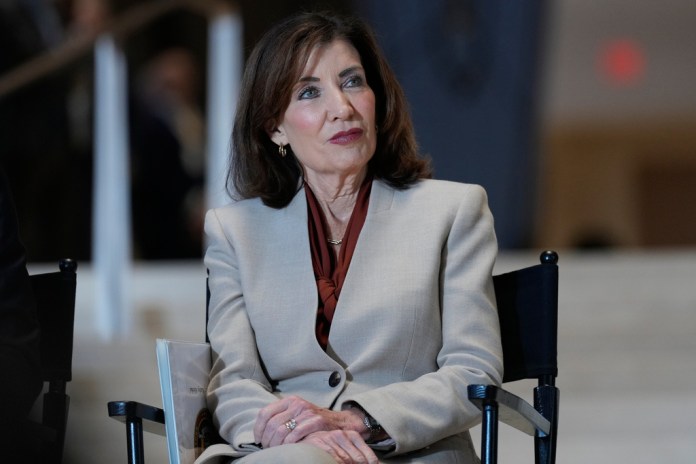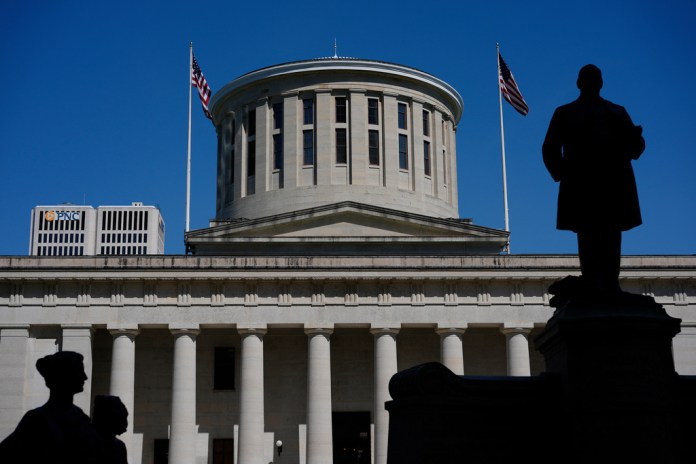Pennsylvania Musician Opposed To Funding Lefty Causes Challenges Forced Unionization
Glen Wilkofsky was not able to make a living as a musician at the peak of the Covid pandemic. Instead, his union dues paid for him to support political activism.
Wilkofsky wasn’t keen to see vaccination mandates as a hurdle for his normal work schedule. However, the union leaders that he financially supported embraced restrictions to government and health-care directives with enthusiasm.
In Pennsylvania, the orchestra played many concerts each year in Lehigh Valley. However, it only performed two concert in 2020 due to government lockdowns. The orchestra members didn’t receive a salary at this point, although they did get a bonus. American Federation of Musicians Local 45An affiliate of international union Representatives of both Canadians and Americans still expect them to pay their dues.
“Before Covid, my contact with the union had been peripheral at best,” Wilkofsky spoke in an interview. “My union membership was forced on me as a condition of my employment. But I have found that the union is very politically active and does not really represent my interests. In fact, I would say the union is really a left-leaning political action committee that masquerades as an advocate for musicians. They support one political party nearly 100 percent of the time, and it looks to me like they spend zero percent of their time representing musicians.”
According to lat., 100 percent of the contributions made by the PAC of the American Federation of Musicians were donated to Democrats during 2019-2020. campaign finance data.
Isabel Blank, Senior Communications Director at Americans for Fair Treatment said: “The fact that the American Federation of Musicians could receive all the benefits of collective bargaining with a public employer while being shielded from having to uphold the constitutional rights of the members of its bargaining unit is a failure.”
Americans for Fair Treatment, a non-profit organization that supports the restoration of the First Amendment in public service is Americans for Fair Treatment. This group keeps track of how government unions spend their money. member dues On politics as compared with representational activities.
Wilkofsky got an email in May 2021 from a union shop worker requesting that he pays dues, which she claimed were owed at the beginning of each year.
“She began by misspelling my name and didn’t even bother to ask how I or my wife were doing during Covid,” Wilkofsky spoke. “There was nothing in the message pertaining to our health or well-being or anything you might expect from your union representatives during this challenging time. The letter was quite threatening, and it was a real tip-of-the-spear moment for me that reinforced the way I had felt for a long time. I was looking for an affirmative way to engage with the union and secure my rights.”
The U.S. Supreme Court made a ruling in June 2018 Janus v. AFSCME Public employees are not allowed to join unions unless they violate the First Amendment. This ruling primarily affected 22 states including Pennsylvania that mandated government employees to join unions or pay fees. Rest of the states have “right-to-work” Forcible unionization is already prohibited by law, at least within the private sector. However, thanks to JanusPublic employees are now all eligible for the “right-to-work” Without having to pay union dues and fees
It is only by following the example set by Janus Pennsylvania can ensure musicians and artists are able to join or refuse to join unions that represent government employees.
Is the Allentown Symphony considered a public employer? And is the union of musicians a public entity if they collectively bargain on behalf public workers? These are key questions in the Wilkofsky case before the U.S. Court of Appeals, Third Circuit.
After receiving the May 2021 letter, Local 45 immediately suspended him from his membership. The union then expelled him several months later. While the orchestra indicated it would terminate his employment shortly after receiving the May 2021 correspondence, his legal arguments could have an impact on any number unionized arts organizations, such as museums or other groups of musicians that receive public funds.
Harrisburg’s Fairness Center is a nonprofit national public interest law company. filed suit Wilkofsky in April 2022. The union and symphony were named as defendants. His attorneys claimed that the defendants had violated the First and 14th Amendments of his Constitution by forcing him to pay dues. Also, they cited Janus.
U.S. District Court Judge Joseph F. Leeson Jr. recognized in his decision The symphony was recognized by Pennsylvania law last August as a public employer under the collective bargaining framework. However, he said that the state could not view the symphony as an actor.
“The fact that the state simply permitted the Defendants to enter into the CBA [collective bargaining agreement] does not mean they acted under color of state law,” The judge concluded. “The Defendants do not perform a function that is delegated by the state, nor are they entwined with government policies or management,” He concluded.
Danielle Acker Susanj (an attorney for Fairness Center) sees the problem. “a straightforward error” Wilkofsky, who is attempting to overturn the decision on appeal at the District Court level, was at work. She explained that Pennsylvania is very different from other states. “broad definition” Who qualifies for public employment under the state’s? Public Employee Relations Act (PERA).
She explained that although the Allentown Symphony was founded as a private organization, the Federation of Musicians is a public entity engaged in state-law collective bargaining. This is the activity that makes it possible for us to be here. Janus Putting your best foot forward
“When Pennsylvania passed a law saying whoever collectively bargains for a public employee is a public employer, the state meant what it said,” Acker Susanj observed. “When the symphony chose to bargain as a public employer, they accepted the duties that come along with this privilege. One of those duties is protecting public employees’ constitutional rights.”
Acker Susanj explained that Wilkofsky’s lawsuit does not consider defendants to be traditionally private entities. Instead, the case will focus on the collective bargaining process.
“The issue is the provision of the union’s collective bargaining that requires Glen and others to be union members or to be fired, and in fact, the symphony is threatening to fire him,” Acker Susanj said. “Even if the symphony is a private organization outside of this process, it does not matter in this case. They’re not really disputing the fact that they are public employers under state law, but they are saying that somehow they are not constitutionally responsible.”
Fairness Center submitted a new brief In the January case, we dissected the ruling of the lower court and further analysed the provisions in state law which make it so. Janus The ruling is applicable.
The Fairness Center believes that although the defendants tried to use the federalism concept to get the case dismissed as part of their efforts to win the case, this argument is in their favor.
“Pennsylvania already has a broader array of public employees than some other states, even beyond the public employee statutory definition at issue in this appeal,” The Fairness Center short. “For instance, many states do not have public employees involved in the sale of alcohol. Pennsylvania does. Just because those employees would be private in another state does not prevent their being public employees in Pennsylvania.”
Acker Susanj cites New York, California and Ohio as states in which the symphony might not be considered a public employer. This reality, however, only supports Wilkofsky’s argument, which revolves around Pennsylvania’s unique characteristics of the labor statute.
“The federalism argument is squarely on our side,” She said. “Pennsylvania decided to go broad on the definition of public employers. You can think this is or isn’t a good policy experiment, but that’s not for unelected judges to decide.”
Wilkofsky could have paid the dues if the musicians union had tried to advocate the rights of its members during the pandemic.
“There certainly were rights that could have been represented during the pandemic, like the right to not be vaccinated against one’s will with an experimental vaccine,” He said. “But the union just threw in with the government position.”
Rebecca Friedrichs is a retired teacher from California’s public schools. She knows how it works. Her free speech lawsuit The Teachers’ Unions were defeated and merged into the Janus case.
“The teachers’ union in California kept saying they were representing me as a professional teacher when they weren’t,” Friedrichs said. “In fact, they weren’t helping me at all. This seems to be the same situation here. The union says they are representing the musicians and trying to give them a better experience on the job when they are just spending their money on politics.”
Acker Susanj hopes this case will win in the lower appeals court.
“Since the Supreme Court said in Janus that anyone who is employed by a state actor or entity has constitutional rights, it certainly would create some confusion if the 3rd Circuit were to rule differently,” She said. “Petitioning the Supreme Court is something we’d have to assess.”
Kevin Mooney is an investigative journalist for The Commonwealth Foundation of Harrisburg and The Heritage Foundation Washington D.C.
“From Pennsylvania Musician Opposed To Funding Lefty Causes Challenges Forced Unionization”
“The views and opinions expressed here are solely those of the author of the article and not necessarily shared or endorsed by Conservative News Daily”
" Conservative News Daily does not always share or support the views and opinions expressed here; they are just those of the writer."




